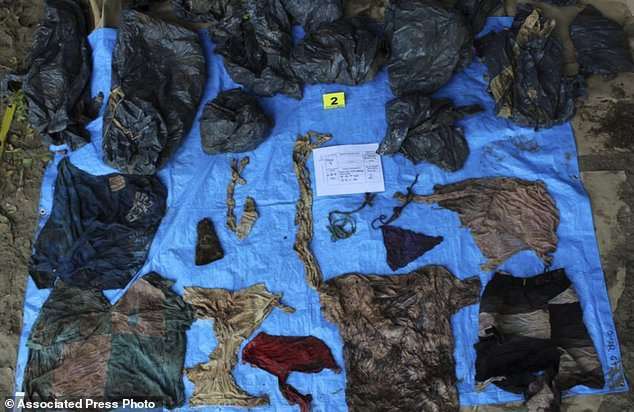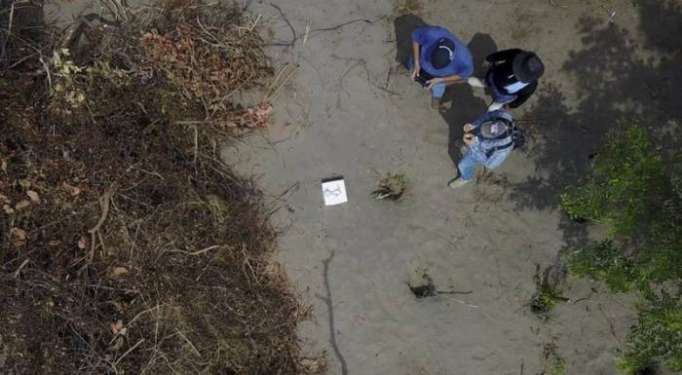State prosecutor Jorge Winckler said the skulls and other human remains had lay there for at least two years.
The bodies were discovered in the eastern state of Veracruz, but the exact location is not being disclosed for security reasons.
Mexican drug cartels frequently use clandestine pits to dispose of their victims. In March last year, 250 skulls were found in a mass grave in the area.
Winckler said investigators had also found about 200 items of clothing, 114 identity cards and other body parts in the same pit.
But investigators are using the number of skulls to predict the amount of victims buried there.
Veracruz has been the scene of bloody turf battles between the Zetas and Jalisco drug cartels. The state has also suffered waves of kidnappings and extortions.
Winckler said prosecutors found the mass grave after a witness tipped them off.
Investigators used drones, probes and ground-penetrating radar to locate the pits and began digging about a month ago.
Relatives of people who have disappeared in Mexico have formed campaign groups and are funding their own searches.
But they weren't allowed to participate in this dig for 'secrecy' reasons, Winckler revealed.
He said they would be shown photos of items found at the site in a bid to help identify the remains.
Activist Lucia Diaz, whose Colectivo Solecito group has led police to other burial grounds in the past, said she doesn't trust the announcement.
She said: 'We don't trust the work they do, we have a lot of reasons. In this case they took out 166 bodies in one month? It cannot have been done properly. It's impossible, too quickly.'

But as well as skulls, more than 200 items of clothing, 114 ID cards and other body parts were discovered in the pit
Diaz joined the effort after her own son, Guillermo Lagunes Diaz, was kidnapped from his home in 2013. No trace of him was ever found.
She said prosecutors illegally excluded families of the disappeared from the latest effort. 'He (Winckler) went against the law, because the law says the families have a right to participate now.'
Maria de Lourdes Rosales Calvo, who has been searching for her son Jonatten Celma Rosales since he was abducted with his girlfriend in July 2013, said the news of the newly discovered grave 'gives hope.'
'They await us in forensics next week to look at the belongings and IDs that were found,' she said.
She said authorities have invited families searching for missing loved ones to come to the state capital of Xalapa and identify the bodies.
Her son was 25 years old and working in foreign trade when four armed men abducted him and his girlfriend from their home six blocks from the mother's home.
Daily Mail
More about: Mexico
















































